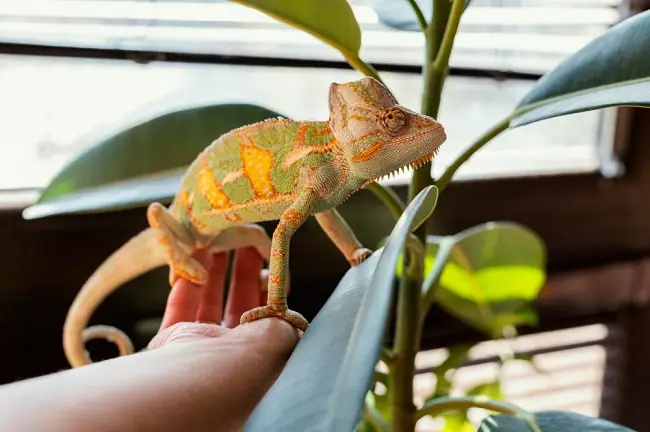Reptiles like lizards, turtles, and snakes make fascinating and unique pets. Proper nutrition is paramount to ensure their health and well-being. One of the most natural and effective ways to nourish reptiles is offering live feeder insects as a primary food source. Live insects from businesses like Crazycritters provide essential nutrients and stimulate your reptile’s hunting instincts. This article will explore the benefits of using live feeder insects as the ultimate reptile nutrition source and the variety of insects suitable for your scaly companions.
Nutritional Superiority of Live Feeder Insects
High Protein Content: Live feeder insects are rich in protein , essential for reptiles’ growth, muscle development, and overall health. The high protein content helps mimic their natural diet in the wild, ensuring they receive the nutrients they need to thrive.

Varied Nutrients: Insects offer a diverse range of nutrients, including vitamins, minerals, and amino acids. These essential elements contribute to reptiles’ bone health, immune system function, and energy levels.
Hydration: Many live insects, like crickets and mealworms, have a high water content, helping reptiles stay hydrated. Proper hydration is critical for digestion and overall well-being.
Natural Instincts: Hunting live prey is inherent in many reptile species. Feeding live insects allows them to engage their wild hunting instincts, providing mental stimulation and physical exercise.
Suitable Live Feeder Insects
Crickets: Crickets are a staple in the reptile-keeping community. They are readily available and come in various sizes, making them suitable for reptiles of different ages and sizes. Crickets are high in protein and relatively easy to keep alive.
Dubia Roaches: Dubia roaches are an excellent choice for reptiles, especially if you want a low-maintenance feeder insect. They are abundant in protein, calcium, and other essential nutrients. Dubia roaches do not climb or fly, making them an ideal option for containment.
Mealworms: Mealworms are small, easy to handle, and a good source of protein and fat. They are commonly used to supplement reptile diets and can be readily stored in a fridge.
Superworms: Superworms are larger than mealworms and provide more substantial nutrition. They are protein-rich and can be an excellent option for more giant reptiles.
Waxworms: Waxworms are high in fat and, due to their palatability, are often used as a treat for reptiles. However, due to their high-fat content, they should be fed sparingly.
How to Care for Live Feeder Insects
Housing: Invest in suitable containers for your feeder insects, ensuring they have enough space to move around. Provide hiding spots and ventilation while keeping the enclosure clean and dry.
Temperature: Different feeder insects require specific temperatures for optimal health and growth. Research the ideal temperature range for your insects and use heating elements or lamps as needed.
Gut Loading: Gut loading refers to feeding your feeder insects nutritious foods before offering them to your reptile. This practice improves the nutritional worth of the insects. Common gut-loading foods include dark leafy greens, fruits, and high-quality commercial gut-loading diets.
Dusting: To further boost the nutritional content of live insects, consider dusting them with calcium and vitamin supplements. These supplements help prevent nutrient deficiencies in your reptiles.
Feeding Tips
Size Matters: Choose appropriately sized feeder insects to prevent choking or digestive issues.
Variety is Key: Provide diverse feeder insects for a well-rounded diet and varied nutrients.
Monitor Consumption: Adjust the quantity based on your reptile’s eating habits to avoid overfeeding or underfeeding.
Observe Behaviour: Pay attention to your reptile’s feeding behaviour for potential health issues.
Conclusion
Live feeder insects from businesses like Crazycritters are undeniably the ultimate reptile nutrition source, offering a wide range of nutrients, mimicking natural hunting behaviours, and contributing to overall well-being. By selecting the suitable feeder insects and providing proper care, you can ensure that your reptile companions lead healthy and fulfilling lives. So, consider incorporating live feeder insects into your reptile’s diet and watch them thrive with the nutrition nature intended.







